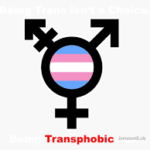In recent years, the conversation around hormone therapy has expanded beyond traditional gender norms, creating a space for men to explore estrogen therapy. This topic has garnered significant attention, encouraging discussions about gender identity, health, and well-being. The increasing acceptance of hormone therapy for men is paving the way for transformative journeys that many are eager to share. In this article, we will delve into the multifaceted experience of men taking estrogen, covering everything from preparation to personal stories and expert insights.
What’s the Buzz About Men Taking Estrogen?
The discussion surrounding men taking estrogen is buzzing with curiosity and intrigue, as more individuals come forward to share their experiences. Traditionally viewed as a female hormone, estrogen is now recognized for its potential benefits for men, particularly those who identify as transgender or non-binary. The evolution of societal perceptions about gender has allowed more individuals to explore their identities, ultimately leading to a broader understanding of hormone therapy.Testosterone Effects Timeline
Moreover, the effects of estrogen on the male body can be quite profound. Many are surprised to learn that estrogen can play a role in mental health, emotional balance, and even physical transformations. With advances in medicine and a growing body of research, men are increasingly considering estrogen therapy as part of their journey toward self-acceptance and wellness.
The Reasons: Why Men Choose Estrogen Therapy
Men choose estrogen therapy for a variety of reasons, often stemming from their desire for gender affirmation. For many transgender women, estrogen represents a vital step in the transition process, helping to align their physical attributes with their gender identity. This step can significantly improve mental health and overall satisfaction with life, as individuals begin to feel more at home in their bodies.
Others may seek estrogen therapy to address health-related issues. Some men suffer from conditions such as hypogonadism, where their bodies produce insufficient testosterone, leading to a range of physical and emotional challenges. Estrogen therapy can help alleviate some of these symptoms, leading to improved quality of life. Regardless of the reason, it’s crucial for anyone considering this treatment to consult with a healthcare professional to discuss their specific needs and goals.
Before Estrogen: What to Expect and Prepare
Before starting estrogen therapy, it’s essential to prepare both mentally and physically. This process often involves a comprehensive consultation with a healthcare provider who specializes in hormone therapy. During this time, potential patients can expect discussions about medical history, hormone levels, and the desired outcomes of treatment. It’s also the perfect opportunity to ask questions and address any concerns regarding the transition.
Additionally, individuals should prepare for potential lifestyle changes that may accompany estrogen therapy. This might include adjusting dietary habits, considering mental health support, or connecting with support groups. Understanding what to expect can help ease anxiety and set realistic expectations for the journey ahead, making the transition feel less daunting.
The Transition: First Steps in Taking Estrogen
The first steps in taking estrogen typically involve starting on a low dose to gauge how the body reacts. Most healthcare providers recommend beginning treatment under close supervision, allowing for adjustments as necessary. This careful approach helps ensure that the patient experiences minimal side effects while maximizing the benefits of the hormone therapy.
As treatment commences, many individuals find it helpful to keep a journal to track physical changes, emotional responses, and overall well-being. Documenting these experiences not only aids in communication with healthcare providers but also offers insight into the journey itself. The transition can be both exciting and challenging, and having a record of one’s personal growth can be immensely rewarding.
Changes During Treatment: Body and Mind Effects
As estrogen therapy progresses, individuals can expect a range of changes in both their body and mind. Physically, many notice softening of the skin, redistribution of fat, and breast tissue development. These changes can significantly bolster self-esteem and affirm one’s gender identity. However, it’s also common to experience side effects such as mood fluctuations, changes in libido, or even hot flashes, all of which should be monitored and discussed with a healthcare professional.
Mentally, the effects of estrogen can be equally significant. Many report enhanced emotional sensitivity and the ability to connect with their feelings on a deeper level. While this can be a positive aspect of the transition, it may also lead to challenges in handling heightened emotions. Support systems, such as friends, family, or therapy, become vital during this time, assisting individuals in navigating the emotional landscape that often accompanies hormone therapy.
After Estrogen: Life Post-Treatment Insights
Life after beginning estrogen therapy can feel like a new chapter, filled with changes that both empower and challenge. Many individuals report a sense of liberation and alignment with their true selves, often leading to a newfound confidence. This transformation can inspire individuals to explore other aspects of their lives, including relationships, career paths, and personal interests, with a renewed vigor.
It’s important to remember that everyone’s journey is unique. Some may experience significant physical and emotional changes, while others may find their journey more gradual. Post-treatment life often includes regular check-ins with healthcare providers to ensure that hormone levels remain balanced and to address any ongoing concerns. This continued care is crucial for maintaining health and well-being long-term.
Real Stories: Men Share Their Estrogen Journeys
Hearing personal accounts from men who have undergone estrogen therapy can be both enlightening and inspiring. Many share stories of struggle and triumph, recounting the challenges they faced before starting treatment and the positive transformations they experienced afterward. For some, the journey began with a sense of isolation and confusion about their gender identity, but introducing estrogen opened doors to new relationships and a deeper understanding of themselves.
These real stories often highlight the emotional rollercoaster that accompanies hormone therapy. Individuals share their fears, hopes, and moments of joy as they navigate their unique paths. The sense of community that develops through shared experiences can provide invaluable support, proving that no one is alone in their journey of self-discovery.
Expert Opinions: What Doctors Say About Estrogen Use
Medical professionals are increasingly recognizing the importance of estrogen therapy for men, especially for those undergoing gender transition. Experts emphasize the necessity of personalized treatment plans that take into account an individual’s specific needs, goals, and health conditions. They stress that estrogen can be a safe and effective option when monitored closely by a healthcare provider.
Moreover, doctors highlight the potential mental health benefits of estrogen therapy, noting that it can significantly improve quality of life and emotional well-being for many individuals. They advocate for a holistic approach to treatment, which includes not only hormone therapy but also psychological support to help individuals navigate the complexities of their transition. This comprehensive care can lead to healthier, more fulfilling lives.
Embarking on the journey of taking estrogen is a deeply personal experience that varies significantly from one individual to another. With a growing acceptance of hormone therapy for men, the conversation around health, identity, and well-being continues to evolve. From understanding the reasons behind seeking estrogen therapy to hearing firsthand accounts from those who have walked the path, it’s clear that this journey can be transformative. As society becomes more inclusive, the hope is for more individuals to feel empowered to explore their identities and pursue the happiness they deserve.


